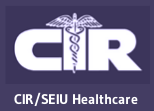Engaging Residents on Our Own Wellbeing 0 
submitted by Eve Kellner 9 years ago
Description
Rates of burnout and depression (distress) are at crisis levels
among resident physicians. Studies of trainee burnout -
characterized by cynical or negative attitudes toward patients,
emotional exhaustion, and a feeling of decreased personal
achievements - revealed that between 41%-90%3 met the
criteria for burnout. The
Committee of Interns and Residents (CIR) implemented a qualitative study on the causes of
resident burnout and protective or “wellness” factors.
The ACGME has recognized the pernicious effect of resident burnout, including increased job turnover and early career
termination, reduced patient satisfaction, increased use of tests and specialist referrals, and higher rates of physician
depression and suicide.
Residents must be directly engaged in identifying both problems and solutions to ensure that high-impact issues are
addressed and that solutions have the desired effect. While the Clinical Environmental Learning Review is a useful
framework to create accountability for addressing resident wellness and burnout, the perspective as one of
professionalism puts all the responsibility on residents to stay well under conditions that have been proved to
contribute to stress, burnout, depression and even suicide.
Get this resource
Only registered users can access the contents of resources. Registration is free and only takes a moment. Register now!
Share this resource
Was this useful? Pass it along to your social and professional networks:

